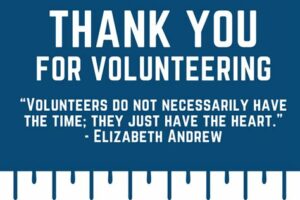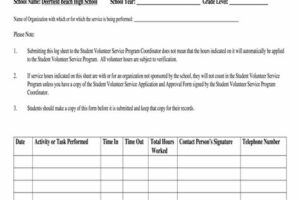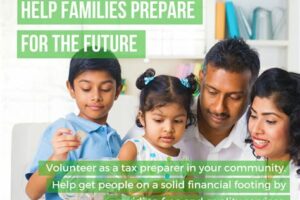Table of Contents
Discover the invaluable opportunities offered by Federal Government Volunteer Programs. Engage in meaningful service, contribute to your community, and make a positive impact on society. Explore various programs and find the perfect volunteer experience to match your skills and interests. Join today and be part of a dedicated team working towards a better future.
The Federal Government Volunteer Programs offer a multitude of opportunities for individuals who are passionate about making a difference in their communities. Whether you are a recent college graduate looking to gain valuable experience or a retiree seeking to give back, these programs provide a unique platform to contribute to the greater good. With a variety of roles available in sectors such as education, healthcare, and environmental conservation, these programs allow volunteers to utilize their skills and expertise while also expanding their knowledge and networks. Moreover, by participating in these programs, volunteers have the chance to work alongside professionals in their respective fields, fostering growth and development in a supportive and collaborative environment.
Federal Government Volunteer Programs: Making a Difference in Communities
Volunteering is a powerful way to contribute to society and make a positive impact on communities. The federal government recognizes the importance of volunteer work and has implemented various volunteer programs to engage citizens in service. These programs provide opportunities for individuals to share their skills, expertise, and time for the betterment of society. In this article, we will explore some of the notable federal government volunteer programs and the benefits they offer.
AmeriCorps: Strengthening Communities through Service
AmeriCorps is a national service program that engages individuals in intensive community service. Participants, known as AmeriCorps members, serve full-time or part-time in nonprofit organizations, schools, public agencies, and community-based groups. They address critical community needs such as education, disaster response, environmental conservation, and more. AmeriCorps members receive a modest living allowance and, upon completion, an education award that can be used for student loans or future educational expenses.
Peace Corps: Promoting Peace and Friendship Globally
The Peace Corps is an internationally renowned volunteer program that sends American volunteers abroad to promote peace, friendship, and mutual understanding. Volunteers live and work in communities around the world, collaborating with locals on projects related to education, health, agriculture, and economic development. Peace Corps service provides an immersive cultural experience while fostering global cooperation and fostering cross-cultural exchange.
Senior Corps: Empowering Older Americans to Serve
The Senior Corps is a program that taps into the experience and wisdom of older Americans. It provides opportunities for individuals aged 55 and older to contribute their skills and time to meet critical community needs. Senior Corps volunteers serve in various capacities, including mentoring at-risk youth, supporting independent living for older adults, and assisting with disaster response efforts. Through their service, these volunteers enrich their own lives while making a lasting impact on the lives of others.
Volunteers in Parks (VIP): Preserving Natural Treasures
The Volunteers in Parks (VIP) program offers individuals the opportunity to become stewards of our nation’s natural treasures. Volunteers work alongside National Park Service staff, assisting with a wide range of tasks such as trail maintenance, visitor services, and environmental education. By dedicating their time and energy, VIP volunteers ensure that future generations can enjoy and appreciate the beauty and significance of our national parks.
Disaster Assistance Volunteers: Providing Relief in Times of Crisis
In times of natural disasters and emergencies, the federal government relies on dedicated volunteers to provide immediate assistance and support. Disaster Assistance Volunteers are trained to respond swiftly and efficiently in crisis situations, offering aid to affected communities. Their work can involve providing shelter, distributing essential supplies, offering emotional support, and assisting with recovery efforts. These volunteers play a vital role in helping communities rebuild and recover from devastating events.
Volunteer Income Tax Assistance (VITA): Helping with Taxes
The Volunteer Income Tax Assistance (VITA) program provides free tax help to individuals who need assistance in preparing their tax returns. Trained volunteers, often located in community centers or other convenient locations, help low-to-moderate-income individuals navigate the complexities of tax filing. By volunteering with VITA, individuals can make a tangible difference in the lives of many by ensuring they receive the maximum tax credits and refunds they are entitled to.
Benefits of Federal Government Volunteer Programs
Engaging in federal government volunteer programs offers numerous benefits to both volunteers and the communities they serve. For volunteers, it provides an opportunity to develop new skills, gain valuable experience, and expand their professional networks. Additionally, volunteering promotes personal growth, boosts self-confidence, and enhances overall well-being. From a community perspective, these programs address critical needs, improve the quality of life, and foster a sense of unity and cooperation among citizens.
How to Get Involved
If you are interested in participating in federal government volunteer programs, there are several ways to get involved. Visit the websites of the respective programs mentioned above to learn more about their eligibility requirements and application processes. Additionally, explore volunteer opportunities on the official website of the Corporation for National and Community Service (CNCS), which oversees many of these programs. Volunteering is a rewarding experience that allows you to contribute to society while making lasting memories and connections.
The Power of Volunteerism
Volunteering through federal government programs presents individuals with an incredible chance to make a difference in their communities, both locally and globally. Whether it’s serving in education, disaster response, environmental conservation, or other areas of need, volunteers play a crucial role in building a better future for all. By harnessing the power of volunteerism, we can create a society that values service, compassion, and civic engagement.
Purpose of Federal Government Volunteer Programs
The purpose of Federal Government Volunteer Programs is to engage citizens in public service to address critical community needs. These programs aim to enhance civic participation and foster a sense of responsibility among individuals towards their communities. Through volunteerism, the federal government seeks to make a meaningful impact by leveraging the skills and expertise of individuals to enhance the effectiveness of public programs and initiatives.
Variety of Volunteer Opportunities
Federal Government Volunteer Programs offer a wide range of volunteering opportunities to cater to diverse interests, skills, and passions. From working in disaster response and recovery efforts to assisting in education and environmental conservation projects, there is a volunteer opportunity for everyone. This variety ensures that volunteers can contribute their talents and skills in areas that align with their professional experience and personal interests.
Benefits of Volunteering
Engaging in Federal Government Volunteer Programs not only benefits the community but also offers numerous advantages to the volunteers themselves. Individuals who volunteer can gain valuable work experience, enhance their skill sets, and develop leadership and teamwork abilities. Moreover, volunteering provides opportunities for networking, mentorship, and professional development, which can prove beneficial for personal growth and future career prospects.
Volunteer Recruitment and Selection Process
The Federal Government follows a structured recruitment and selection process to ensure that volunteers are matched with suitable opportunities. Interested individuals can browse through volunteer programs on various government websites and submit their applications electronically. The selection process may involve interviews, background checks, and suitability assessments, ensuring that the selected volunteers have the necessary qualifications and meet the required standards for the specific assignments.
Training and Support for Volunteers
To equip volunteers with the necessary skills and knowledge, Federal Government Volunteer Programs provide comprehensive training and support. Volunteers receive specialized training to enhance their understanding of the program’s objectives, methodologies, and desired outcomes. They also receive ongoing support from program coordinators, who provide guidance, answer queries, and ensure a smooth and fulfilling volunteering experience.
Recognition and Appreciation for Volunteers
The federal government recognizes the significant contributions made by volunteers and provides various forms of appreciation and recognition. This can include certificates of appreciation, letters of recognition, and opportunities to attend recognition events. This recognition not only acknowledges the efforts of volunteers but also serves as an encouragement for others to engage in volunteerism and contribute towards the betterment of society.
Impact on Communities
Federal Government Volunteer Programs have a positive and lasting impact on communities across the nation. By leveraging the skills and passion of volunteers, these programs contribute to addressing critical needs such as disaster response, poverty alleviation, environmental conservation, and healthcare access. The combined efforts of volunteers and the federal government create a powerful force that helps build resilient communities and enhances the quality of life for all citizens.
Future Opportunities and Expansion
The Federal Government recognizes the importance of volunteerism and aims to further expand and diversify volunteer programs in the future. This includes exploring new partnerships with nonprofits, community organizations, and private businesses to create more opportunities for individuals to engage in meaningful volunteer work. Through this collective effort, the federal government strives to meet evolving community needs and create a culture of civic engagement and active citizenship.
In today’s rapidly changing and interconnected society, the role of the Federal Government Volunteer Programs has become increasingly crucial. These programs not only serve as an avenue for individuals to give back to their communities but also play a vital role in addressing some of the most pressing social issues of our time. From disaster response to education and healthcare initiatives, Federal Government Volunteer Programs provide a professional and effective platform for individuals to make a positive impact.
Here are some key points highlighting the importance of Federal Government Volunteer Programs:
- Specialized expertise: Federal Government Volunteer Programs attract individuals with diverse backgrounds and skill sets, allowing for the mobilization of specialized expertise. Volunteers bring a wealth of knowledge and experience to the programs, enabling them to tackle complex challenges effectively.
- Efficiency: The Federal Government Volunteer Programs operate under professional management and oversight, ensuring efficient utilization of resources and maximizing the impact of volunteer efforts. By establishing clear goals and objectives, these programs can streamline operations and achieve measurable outcomes.
- Collaboration: Federal Government Volunteer Programs foster collaboration among various stakeholders, including government agencies, non-profit organizations, and local communities. Through partnerships, these programs leverage collective strengths and resources to address complex social issues that require a multi-faceted approach.
- Disaster response: In times of natural disasters or emergencies, Federal Government Volunteer Programs play a vital role in providing immediate relief and support. Trained volunteers can assist in search and rescue operations, provide medical aid, distribute essential supplies, and help affected communities rebuild and recover.
- Community development: Federal Government Volunteer Programs contribute to the overall development of communities by engaging volunteers in various projects aimed at improving infrastructure, education, healthcare, and other essential services. By investing in communities, these programs foster sustainable growth and enhance the quality of life for all residents.
- Civic engagement: Through Federal Government Volunteer Programs, individuals have the opportunity to actively engage in civic life, fostering a sense of belonging and ownership in their communities. By volunteering, citizens develop a deeper understanding of social issues and contribute to building a stronger, more cohesive society.
In conclusion, Federal Government Volunteer Programs provide a professional and effective platform for individuals to make a positive impact in their communities. These programs leverage specialized expertise, operate efficiently, foster collaboration, and address critical social issues such as disaster response and community development. By engaging in these programs, volunteers not only contribute to the betterment of society but also develop valuable skills and experiences that can benefit them both personally and professionally.
Thank you for taking the time to visit our blog and learn more about Federal Government Volunteer Programs. We hope that the information provided has been insightful and has piqued your interest in getting involved in these meaningful initiatives. As we conclude, we would like to highlight a few key points that we believe make these programs worth considering.
Firstly, participating in Federal Government Volunteer Programs offers a unique opportunity to contribute to the betterment of society. Whether it is by assisting individuals in need, supporting environmental conservation efforts, or promoting education and healthcare, your involvement can make a tangible difference in the lives of others. The federal government’s commitment to addressing various social issues through these programs provides a platform for individuals like yourself to actively engage in creating positive change.
Moreover, volunteering within the federal government framework offers numerous personal and professional benefits. By joining these programs, you have the chance to develop new skills, gain valuable work experience, and expand your network. Working alongside dedicated professionals from diverse backgrounds will not only enhance your knowledge but also broaden your perspective on various societal challenges. This exposure can be particularly beneficial for those looking to explore career paths within the public sector or related fields.
In addition, Federal Government Volunteer Programs provide a structured and supportive environment for volunteers. From comprehensive training sessions to ongoing guidance and mentorship, these programs prioritize your success and ensure that you have the necessary resources to excel in your role. The federal government understands the importance of fostering a positive volunteer experience, and they strive to create an inclusive and empowering atmosphere where all participants feel valued and appreciated.
In conclusion, Federal Government Volunteer Programs offer a unique avenue to make a positive impact on society, while also providing personal and professional growth opportunities. Whether you are passionate about humanitarian efforts, environmental sustainability, or any other social cause, there is likely a program that aligns with your interests. We encourage you to explore the various options available and take the first step towards becoming a federal government volunteer. Together, we can work towards building a better future for all.
Thank you once again for visiting our blog, and we hope to see you actively involved in Federal Government Volunteer Programs soon!
Video Federal Government Volunteer Programs
Here are some commonly asked questions about Federal Government Volunteer Programs:
1. What are the benefits of volunteering for the Federal Government?
Volunteering for the Federal Government can provide numerous benefits, including:
- Opportunities to contribute to important public service initiatives
- Development of valuable skills and experience
- Networking and professional connections
- Enhancement of your resume and career prospects
- Personal satisfaction and fulfillment from making a positive impact on society
2. How can I find volunteer opportunities within the Federal Government?
To find volunteer opportunities within the Federal Government, you can:
- Visit official government websites, such as USA.gov and Volunteer.gov, which often list available opportunities
- Check with specific federal agencies or departments that align with your interests
- Reach out to volunteer coordinators or human resources departments within federal agencies
- Attend career fairs or networking events that involve federal government organizations
3. Are there any age restrictions for volunteering with the Federal Government?
Age restrictions for volunteering with the Federal Government can vary depending on the specific program or agency. Some programs may have a minimum age requirement, while others may not. It is best to check the requirements of the particular opportunity or agency you are interested in volunteering with.
4. Do Federal Government volunteer positions provide any compensation?
Generally, Federal Government volunteer positions do not provide monetary compensation. However, volunteers may receive certain benefits such as transportation reimbursements, training opportunities, or recognition for their service.
5. How long do Federal Government volunteer programs typically last?
The duration of Federal Government volunteer programs can vary. Some programs may require a short-term commitment, such as a few weeks or months, while others may offer long-term opportunities that can span several years. It depends on the specific program and the needs of the agency.
6. Are there any specific qualifications or requirements to volunteer for the Federal Government?
The qualifications and requirements to volunteer for the Federal Government can differ based on the program or agency. While some programs may not have strict prerequisites, others may require specific skills, background checks, or security clearances. It is advisable to review the eligibility criteria outlined by the respective volunteer program or agency.
7. Can volunteering for the Federal Government lead to employment opportunities?
Volunteering for the Federal Government can potentially open doors to employment opportunities. It allows you to gain valuable experience, network with professionals in your field of interest, and demonstrate your dedication to public service. However, securing paid employment within the Federal Government is a separate process that typically involves competitive applications and hiring procedures.
8. Can non-U.S. citizens volunteer for the Federal Government?
Non-U.S. citizens may be eligible to volunteer for certain Federal Government programs and agencies, depending on their immigration status and the specific requirements of the opportunity. Some roles within the Federal Government may have citizenship requirements due to security concerns or the nature of the work. It is recommended to check the eligibility criteria for each individual program or agency.
Remember to consult official government websites or directly contact relevant agencies for the most accurate and up-to-date information regarding Federal Government volunteer programs.






